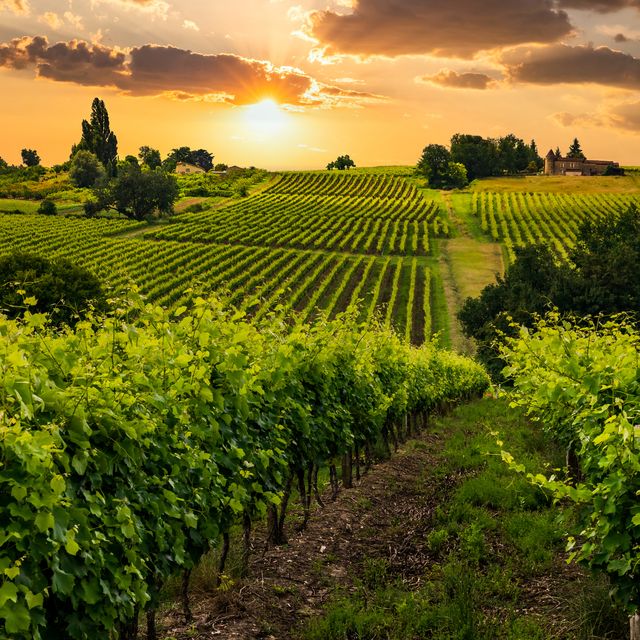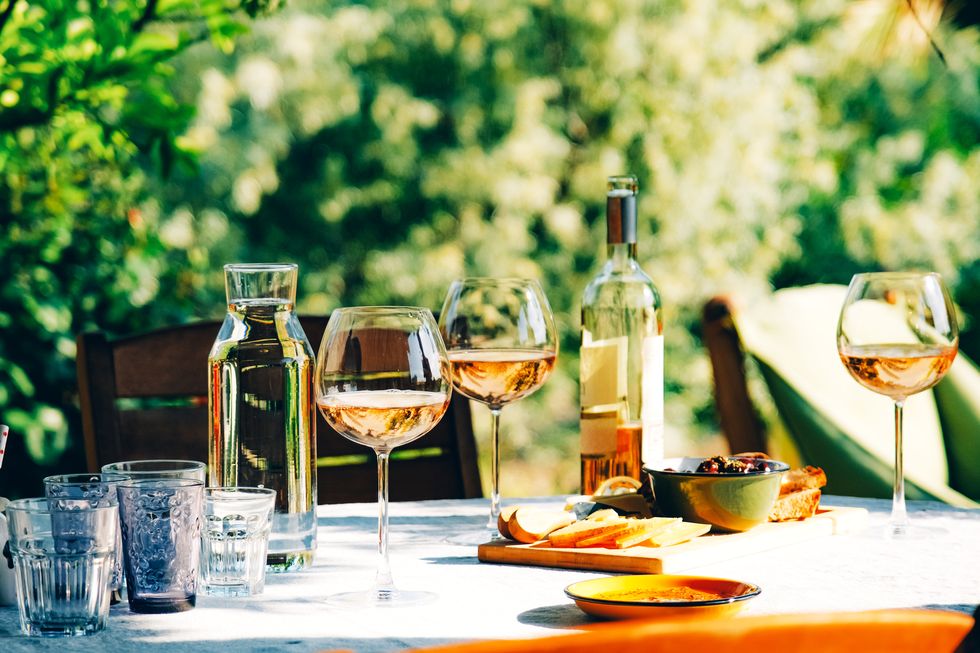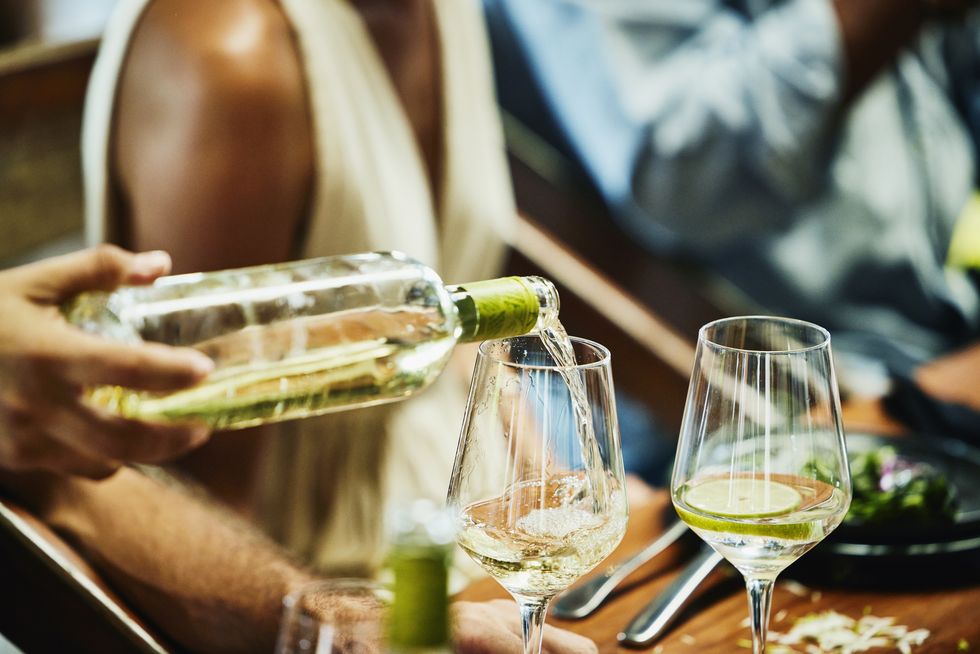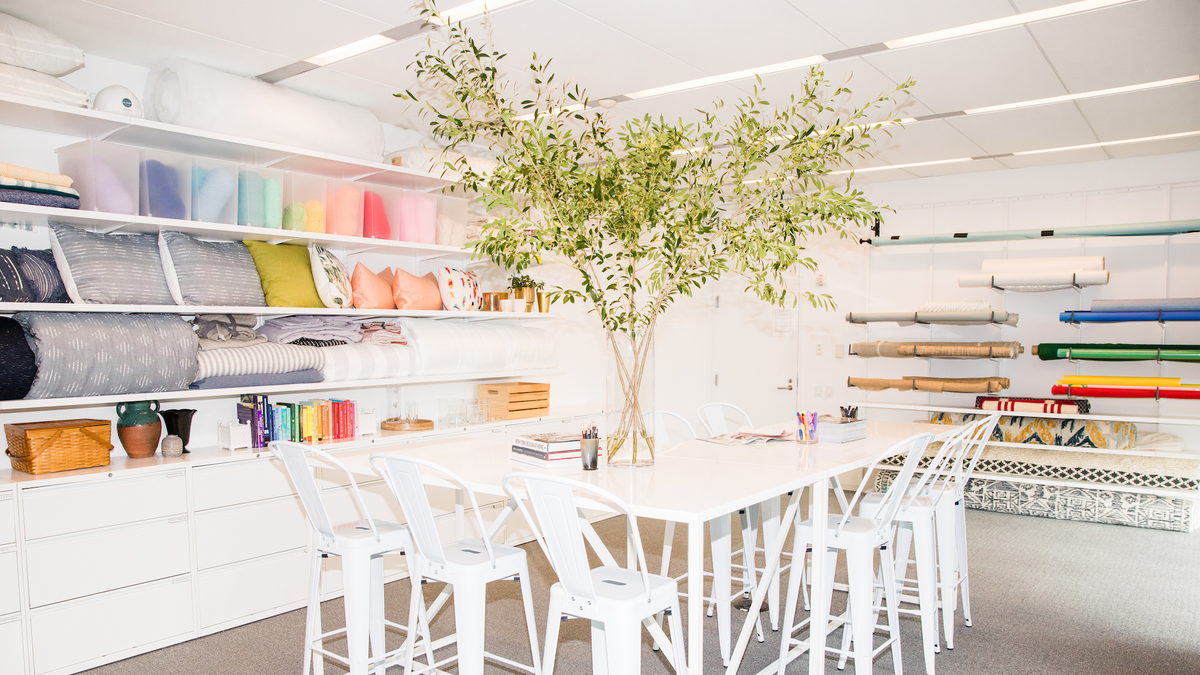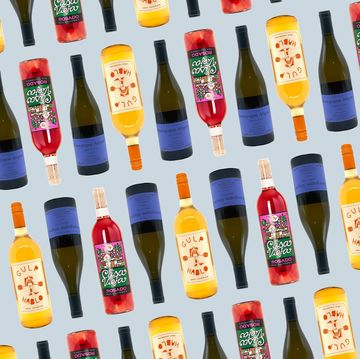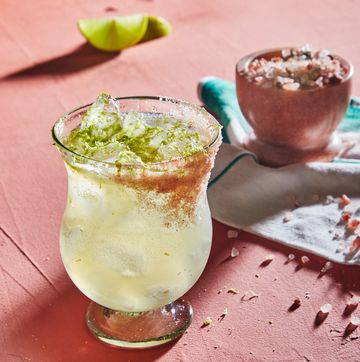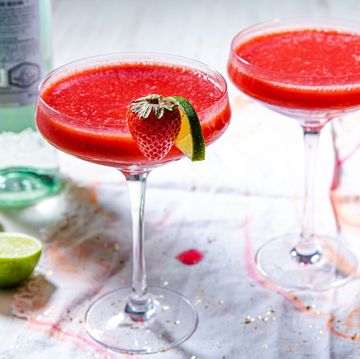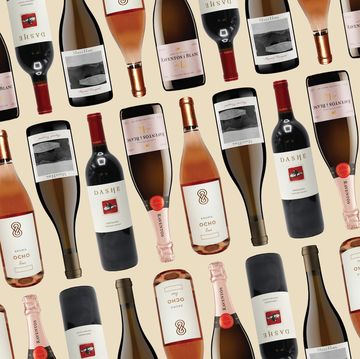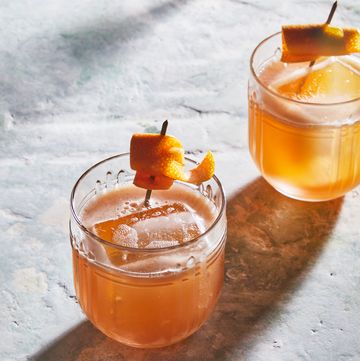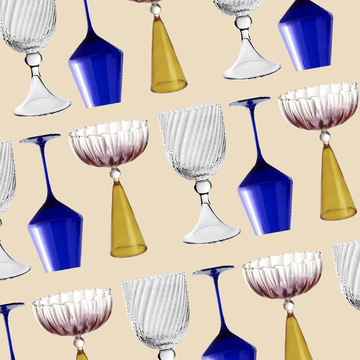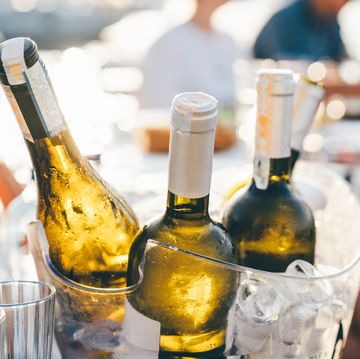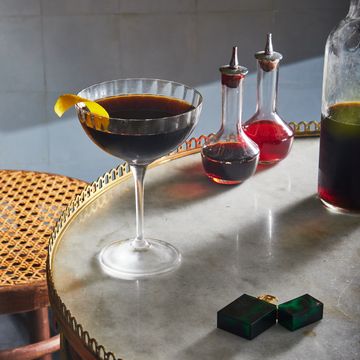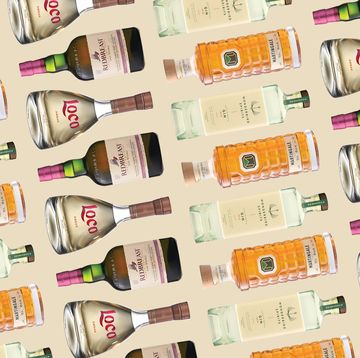In lockstep with sustainable travel’s rise in popularity and prominence, sustainable wine is becoming a growing interest area among those who imbibe. The organic wine market is expected to grow by 10.2 percent each year between 2022 and 2030, according to a report by Grand View Research, Inc.
You might be wondering, “If it's farmed organically or made sustainably, does the wine taste better?”
“Not necessarily. In my personal experience, more diligent farming leads to higher-quality fruit and higher-quality fruit leads to ‘better wines,’” explains Elyse Lovenworth, a Philadelphia, Pennsylvania-based lead sommelier for the premium online wine shop and wine tasting experience Sommsation. “But that doesn’t mean they necessarily taste better or that you’ll like them more.”
A wine or winery’s sustainability choices can impact how you experience the wine, though. If you feel better about your purchasing choices, then you’ll probably enjoy what you’re drinking even more—which certainly is something we’ll raise a glass to!
Despite the market growth and growing consumer interest, organic grapes aren’t the only feature to look for if you’re interested in investing in sustainable wine or visiting a sustainable winery, though. Ahead, wine experts spill about all of the elements that can impact a wine’s eco-impact. Then learn about wineries around the world that are sommelier favorites and sustainable all at once.
What Makes a Wine Brand Sustainable?
Since the winemaking process relies on grape farming, wine is a product of agriculture.
“There’s significant environmental implications because of the agricultural essence of the product. Everything including fertilizers, pesticides, soil health, water, and energy usage deeply impact the environment. Within the agriculture industry, there’s a lot of societal implications for the workers as well. If a person wants to drink thoughtfully, sustainably or responsibly, they’ll want to look for whether the wineries consider both the environment and the people who contribute to the production of their wines,” Lovenworth says.
A holistic perspective of sustainability in wine encompasses everything from the ecosystem that surrounds the vineyard and the bedrock beneath the soil, to the finished product and packaging of wine and how it's stored and shipped. Beyond that, it’s also about social impact, or how wineries treat their farmers, producers and local community.
“It’s difficult to find a winery that focuses on sustainable farming, sustainable production and ethics. With so many factors to take into consideration, I think it’s best to find what’s most important to you and support that through your purchasing and consumption behaviors,” Lovenworth says.
Before booking a trip to a winery or buying a bottle from a wine brand, look at these details to investigate its sustainability. While you may not find a winery that checks all the boxes, you can seek out wineries that are leading the way in one or several of the areas that matter the most to you.
- The grapes. When a winery says that they use sustainable practices, it almost always means they make wines from sustainably farmed grapes, Lovenworth says. The same goes for organic wines. “Most people assume if ‘organic’ is mentioned that the wine itself is 100% organic, including farming and production, when usually it’s just referring to the grapes,” she adds.
- The farming and production practices. So what could make an organic grape turn into a not-so-Earth-friendly wine? “The use of chemicals and pesticides in the farming process and carbon-emissions from diesel-fueled tractors. These definitely have an environmental impact,” says Greg Martellotto, a San Diego, California-based founder of Martellotto Winery and the online fine wine marketplace Big Hammer Wines. Winemaking “requires copious amounts of water to prepare and sterilize equipment and to clean up fruity, sugary messes,” Martellotto adds. Sustainable wineries often employ a “capture-recapture” system, or recycle water to reduce their overall environmental impact. In addition, some producers are now using solar-powered machines to help reduce emissions.
- The packaging. In recent years, sustainable winemakers, including Martellotto and his team at Martellotto Winery, have begun packing wines in lighter-weight recycled and recyclable glass bottles and removing the wine capsules made of tin foil, a non-renewable material, from the neck of the bottles. In terms of the topper, a screw cap or pop-top (like a bottle of soda or beer, which is used on some newer sparkling wines) might be your best bet. It takes a lot of energy just to produce cork and they’re not biodegradable. Screw caps, however, are made of metal and can be recycled,” Lovenworth says.
- The winery buildings and tasting rooms. As the industry evolves, there are more and more holistically sustainable wineries popping up. “They take into consideration not only the farming but also the impact of the production facilities. Buildings are designed to minimize environmental impact, water usage and energy usage with gravity flow,” Lovenworth says. This can be expensive, she admits, but the values-driven business decision can pay off to attract consumers—and support Mother Nature.
The overarching goal of all sustainable wine practices are “to produce wines that are responsibly farmed and thoughtfully made,” Lovenworth says.
There are a myriad of certifications at the regional and federal level for eco-friendly wines, including Vinea in WA, LIVE, SIP, Demeter, Salmon Safe, Napa Green, Fish Friendly, Biodynamic and Certified Organic. Unfortunately the certification system hasn’t become organized enough to have widespread certifications for all wineries. Plus, most of the certifications include only the farming practices and not the production of the wine, since production and farming have a whole set of different standards.
So don’t be fooled by the fact that there’s no stamp on the bottle; a winery can still be sustainable. Check out the brand’s website, and reach out to the staff with questions about the environmental factors above, if desired.
10 of the Best Sustainable Wineries Around the World
Anaba Wines
In 2009, Anaba Wines became the first Northern California winery to utilize wind power. A 45-foot wind turbine provides clean energy for operations on the entire Carneros estate. To support soil health and biodiversity, farmers utilize cover crops, plant daikon radishes to replenish the soil between seasons and steer clear of chemical fertilizers. Anaba Wines leadership also treats their team with TLC, offering livable wages and healthy working conditions.
Brooks Wine
Founded in 1988, this Amity, Oregon winery focuses on biodynamic farming for the grapes and most of the produce grown for use in the tasting room's culinary program. The Brooks grounds are spotted with native flowering plants to attract native pollinators, too. And they have the awards to back up their sustainability claims: Brooks is the first winery in the world to have a B-Corp Certification, Demeter Biodynamic Certification, and to be a member of 1% for the Planet all at once. Brooks is also a member of Ecologi, and as part of that group, they plant trees with every order, every club anniversary and at other times throughout the year. In the past six months alone, the Brooks crew planted more than 40,000 trees.
Bodega Trivento
If global wines are more your jam, turn your attention to this bestselling Argentinian wine brand. Mendoza-based Bodega Trivento is a B-Corp certified winery, and stands out by way of its water use management program as well as the way it treats its staff and neighbors. They offer flexible working schedules to team members, and employees and their families can secure quality education at the winery’s part-time satellite school or by accessing one of the 50 education grants gifted each year.
Soter Vineyards
Situated on 240 acres of land in Carlton, Oregon, Mineral Springs Ranch is Soter’s biodynamic estate farm that’s home to highland cattle, the vineyard and a kitchen garden (which supplies nearly 100 percent of the restaurant team’s produce needs). For every bottle of their Planet Oregon line sold in Oregon, Soter donates $1 to the Oregon Environmental Council, an organization that legislates and lobbies for cleaner air and climate resilience. Since 2009, they've contributed more than $130,000 to the cause.
Ram’s Gate Winery
Sneak over to Sonoma, California, to sample wines at Ram’s Gate, which has been certified sustainable by the California Association of Winegrape Growers and by Fish Friendly Farming. The grape vines are all organically farmed, and the brand will secure its organic certification before the end of 2023. Through extensive research and new technology, the winemaking team has been able to reduce water usage by 33 percent over the last 5 years. Instead of chemical-laden sprays, Ram’s Gate turns to a team of sheep, owls and hawks to provide natural weed and pest control.
Reciprocity
A little further south, in Paso Robles, California, you’ll find the vines that grow the grapes used in the organic vinos sold by Reciprocity. As of April 1, 2023, they’re members of the 1% For The Planet, which focuses on “putting people over profit.” Instead of chemical herbicides and fertilizers, farmers use cover crops, natural pest management and organic fertilizers. The winery is illuminated with energy-efficient lighting, which trims typical energy usage by about 57 percent.
Badia a Coltibuono
In case you need a reason to book a trip to Tuscany, Italy, this might convince you: Badia a Coltibuono’s winery has used zero herbicides or insecticides since 1985. They’ve been certified organic by Delinat, which has the most stringent organic guidelines in Europe, since 2013. The winery’s owners also partner with nearby universities and nonprofits to research ways to preserve their local landscape.
Matthiasson
“The best fertilizer is a farmer’s footsteps,” according to the team behind this Napa, California wine brand. All of their vineyards are organic (or on the way to becoming so). They plan native grasses, aim to limit water use and support the well-being of the soil—and their staff. Vineyard workers are employed all year long, unlike many other wineries, and can access health insurance and take advantage of internship and educational opportunities.
Macari Vineyards
Chemical herbicide-free for its entire 27 years of existence, this Long Island, New York winery saves water by eschewing irrigation. Macari is an industry innovator in the soil space; they joined forces with scientists at Stony Brook University to learn how to make their own kelp-infused compost to act as a natural fertilizer and help rejuvenate the soil.
Frank Family Vineyards
This Napa, California winery is driven by a “Green to our Roots” mission that includes sustainability certifications with Fish Friendly Farming and Napa Green. In 2022, Frank Family became the first Napa Valley winery to sign up for MCE Deep Green, which means the winery operates on 100% renewable energy (wind and solar are the powerhouses here). Frank Family Vineyards’ roots go deep into the community as well. In 2018, the leadership founded “Frank for a Cause,” an annual fundraiser that has raised more than $100,000 to date to give back to nonprofits like K9s For Warriors, Feeding America, the Humane Society and the Arbor Day Foundation.
